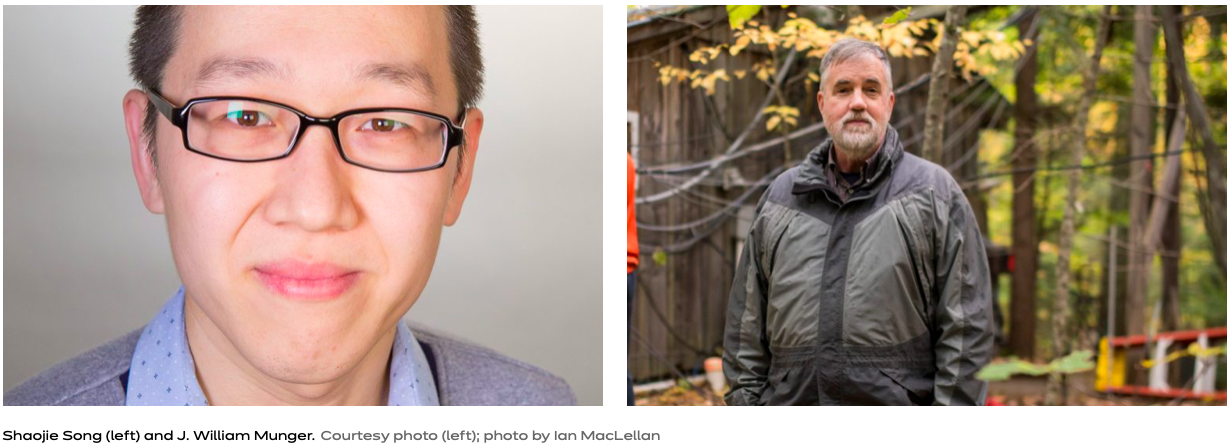
New ideas for global warming solutions win $1M in funding
Harvard's Climate Change Solutions Fund awards recognize nine projects, including one from the Harvard-China Project
By Erin Tighe, Office for Sustainability | Article from the Harvard Gazette
Harvard faculty and students are training their interests and expertise on what is literally the world’s hottest hot-button issue: global warming. As a result, nine research teams will share $1 million in the seventh round of the Climate Change Solutions Fund (CCSF) awards for proposals that create critical knowledge, propel novel ideas, and lead toward solutions that can be applied at Harvard and across the globe.
“Pursuing a more sustainable future means advancing on several fronts to address the tremendous challenges posed by climate change,” Harvard President Larry Bacow said. “The projects being funded this year draw on strengths from across the University and among a wide swath of researchers and scholars. I look forward to seeing where their efforts lead us in the years ahead.”
Vice Provost for Research Richard McCullough, whose office administers the fund, said, “The variety of research in which our faculty and students engage — projects in government, engineering, chemistry, biology, architecture, and more — reflects Harvard’s strong commitment to addressing the full scope of impacts from climate change. With support from the University and generosity from alumni and others, CCSF is able to fund projects that are paramount to solving global climate and health challenges.”
The fund was established in 2014 by President Emerita Drew Faust to support and speed up Harvard’s transition from nonrenewable to sustainable sources.
This year’s projects range from studying the implications of geographic and administrative boundaries on groundwater extraction in India, to identifying sources of methane in China, to examining natural structures with useful properties at Harvard’s Museum of Comparative Zoology.
The fund review committee selects research projects each year from the University’s 12 Schools, giving special consideration to those that use the campus as a living laboratory to study global sustainability challenges that align with the priorities in the Harvard’s Sustainability Plan and the climate goals defined by the Presidential Committee on Sustainability and the Office for Sustainability. As of 2021, nearly 60 CCSF projects have received more than $7 million. The fund is supported by the President’s office and donations from alumni and others.

Harvard-China Project Proposal: Using In Situ Observations to Identify Methane Sources in the Beijing Region
Shaojie Song (above, left), Research Associate, Harvard-China Project on Energy, Economy, and Environment, Harvard John A. Paulson School of Engineering and Applied Sciences, with co-investigator J. William Munger (above, right), Senior Research Fellow in Atmospheric Chemistry, Harvard John A. Paulson School of Engineering and Applied Sciences
Human activities concentrated in cities are dominant sources of carbon dioxide and methane, the greenhouse gases that affect climate. Urban areas account for 70 percent of Earth’s greenhouse gases, but knowing exactly where emissions come from is essential for developing effective and affordable management plans. This project will use atmospheric measurements to assess methane sources in the Beijing region, where government policy mandated a shift from coal to natural gas in district heating plants and building boilers. The goal of the project, a collaboration of the SEAS-based Harvard-China Project and the Tsinghua University School of Environment, is to determine whether the coal-to-gas conversion has had its intended effect on greenhouse gas reduction or inadvertently created a new greenhouse gas source. The work will prepare the team for future research on poorly understood dimensions of the second-most-powerful greenhouse gas emissions in China and identifying effective and affordable mitigation solutions.
